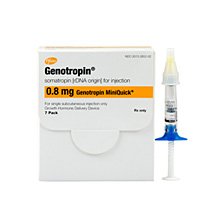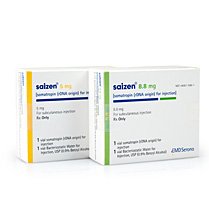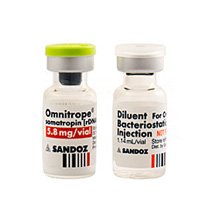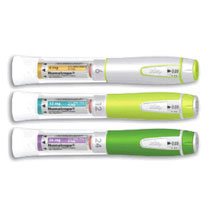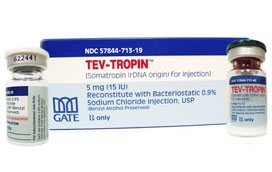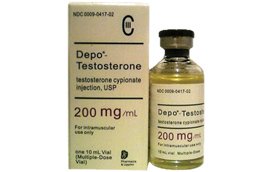HGH Deficiency Treatment: What You Need to Know

Adult growth hormone deficiency (AGHD) is a significant medical risk to the health and well-being of men and women as they age. AGHD has been linked to increased premature mortality associated with cardiovascular disease.
Skeletal abnormalities, including osteoporosis, type 2 diabetes, metabolic syndrome, and neuropsychiatric-cognitive decline, are often seen with growth hormone deficiency (GHD) in adults. Daily HGH deficiency treatment provides a supply of exogenous human growth hormone to make up for what the body lacks.
In this review of growth hormone deficiency treatment, we will discuss the following:
- What is HGH deficiency treatment?
- Why adults need treatment for GHD
- The signs of GHD in adults
- Benefits and side effects of HGH deficiency treatment
- Medications used to for the treatment of growth hormone deficiency in adults
- How to start human growth hormone treatment
Is HGH treatment legal for adults?
Yes, as with any other type of hormone replacement therapy, HGH treatment is legal when medically prescribed following the appropriate diagnostic testing. A prescription for HGH therapy is required before purchasing the medication from a pharmacy in the US.
HGH deficiency treatment is a well-tolerated medical treatment for adults with low levels of growth hormone.
What Is HGH Deficiency Treatment?
HGH treatment for growth hormone deficiency utilizes bioidentical, recombinant human growth hormone to supplement what the body no longer produces. As men and women age, their bodies undergo many changes. One of these alterations is a decline in the production of critical chemical messengers – hormones.
The field of hormone replacement therapy uses diagnostic blood analysis to determine which chemicals are out of balance. With that determination, an appropriate plan of action using targeted and personalized hormone therapy can restore homeostasis (balance) to the body.
HGH deficiency treatment provides human growth hormones, with the same 191 amino acid molecular structure as growth hormone (somatotropin), for the body’s growth hormone (GH) receptors to utilize. Due to the bioidentical structure of HGH, it can readily bind to the GH receptors to stimulate their actions.
Why Do Adults Need HGH Deficiency Treatment?
Although growth is no longer a necessity upon attaining adult height, the body’s cells are in a continual state of renewal and growth. These cells are critical components of the skin, muscles, bones, hair, organs, tissues, and nails. HGH deficiency treatment ensures that cellular regeneration continues throughout life.
Cell reproduction is not the only function of growth hormone. The effects of GH influence the following:
- metabolism and body composition
- insulin resistance
- glucose levels
- lipid profile
- cognitive performance (including memory and emotional well-being)
- bone remodeling and mineral density
- muscle mass and strength
- sexual desire and functions
- immune system actions and healing ability
- temperature regulation
Growth hormone deficiency treatment in adults significantly improves outlook and quality of life for those diagnosed with AGHD.
What Are the Signs of HGH Deficiency in Adults?
The clinical manifestations of AGHD may vary considerably from one person to another. The reason for that is the many facets of growth hormone.
GH receptor cells (RCs) are found in various regions of the brain, and on all organs, tissues, muscles, and bones. With low GH levels, the reduced amount of growth hormone cannot adequately reach all the receptors. The RCs that receive a plentiful supply of GH perform their functions. Those that do not are unable to activate their roles. It is those areas that see the degeneration of their actions.
To determine the need for growth hormone deficiency treatment, adults can look at the following signs and symptoms of AGHD to justify diagnostic testing:
Appearance (changes that you can often see) | Skin – sagging, age spots, cellulite, wrinkles, thinning, dryness Hair – loss, balding, thinning, brittle texture, slow growth Nails – brittle, slow growth, chipping, breaking, thinning Weight – increased body fat, especially abdominal area Muscles – shrinkage, softening |
Brain (the many ways GH influences cognitive and emotional well-being) | Lack of focus Poor attention Difficulty learning new things Slow processing Memory failure or loss Depression Changes in mood Increased stress, anxiety |
Cell Regeneration (physical aspects of growth hormone deficiency) | Decreased bone density Internal organ shrinkage Muscle loss Reduced collagen and elastin |
Metabolism (physiological actions that influence weight, metabolic syndrome, and diabetes)
| Impaired lipolysis Food conversion to fat, not energy Reduced insulin sensitivity Higher blood glucose levels |
Cardiovascular (physiological actions that influence heart health and circulation)
| Increased LDL and total cholesterol Reduced HDL cholesterol Plaque accumulation in the arteries – atherosclerosis Decreased cardiac muscle mass Reduced cardiac functions Decreased capacity for exercise Increased risk of heart disease |
Immunity (the body’s ability to maintain wellness)
| Diminished ability to fight off invading microorganisms Frequent or longer-lasting illness Slow recovery Reduced injury healing |
Other
| Increased inflammation Sensitivity to changes in temperature Joint pains Muscle and body stiffness Lower libido Impaired sexual functions PMS and menopausal symptoms Male breast tissue enlargement or swelling Trouble sleeping Reduced quality of life |
HGH deficiency treatment can benefit all these areas associated with low growth hormone levels.
Important Facts about HGH Deficiency Treatment
Before starting any course of HGH deficiency treatment, it is crucial to understand both the potential growth hormone deficiency treatment benefits and side effects, as listed below:
- Benefits – some of the highlights adults with GHD experience
- Better sleep
- More energy
- Improved body composition – weight loss and increased muscle tone
- Less pain and stiffness
- Better health
- Sharper cognitive functions
- Happier mood
- Stronger bones
- Increased exercise capacity
- Enhanced sex drive and performance
- Lower cholesterol and blood pressure
- Improved heart health
- Side Effects – potential adverse reactions if GH levels become too high
- Fluid retention – edema
- Headaches
- Joint, nerve, or muscle pain
- Insulin resistance
- Acromegaly
Carpal tunnel syndrome and type 2 diabetes could occur if other side effects are ignored or if too much HGH is administered for extended periods – as is often seen with illegal and unauthorized use.
The most common growth hormone deficiency treatment side effects are injection site reactions such as pain, irritation, or swelling. The side effects listed above rarely occur when using medically prescribed HGH therapy. If any reactions do occur, they are typically short-lived and resolve themselves within a few weeks as the body adjusts to higher HGH levels.
HGH Deficiency Treatment Medications
Two pathways for growth hormone deficiency medications and treatment exist – drugs that directly increase GH levels and those that stimulate the body to produce more growth hormone.
Here is what to know about HGH deficiency treatment medications:
- HGH Injection Brands – these drugs are recombinant human growth hormones, and directly increase the amount of available HGH in the body:
- Omnitrope
- Norditropin
- Genotropin
- Saizen
- Zomacton
- Humatrope
- Secretagogues – these medications work in the hypothalamus or pituitary gland to naturally increase growth hormone production:
- Sermorelin
- Ipamorelin
The HGH treatment cost is significantly lower with secretagogue therapy. For those who do not yet experience significant symptoms of AGHD, secretagogues may be the better option. Some people may do well with a combination approach to treatment.
How Do I Start HGH Deficiency Treatment?
You will want to contact a doctor who specializes in the field of adult hormone replacement therapy. You can have your consultation in person with a local endocrinologist or via telemedicine phone call with one of our medical advisors here at Greenberg Health. Our hormone team consists of doctors, nurses, and medical advisors with extensive experience in the field of hormone replacement therapy.
Your growth hormone deficiency treatment cost savings will be considerable when you bypass the specialist office visit fees and opt for our complimentary consultation services. We have also arranged for low-cost blood testing with a chain of laboratories across the US.
Upon receipt of a diagnosis of AGHD, our doctor will determine how much HGH to prescribe for daily use. Together, we help you select the brand and injector style of human growth hormone medication best suited to your needs.
For additional information about HGH deficiency treatment for adults, please contact Greenberg Health for your free consultation.

















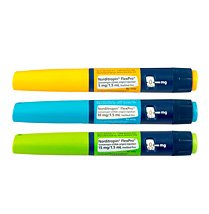
 Norditropin
Norditropin